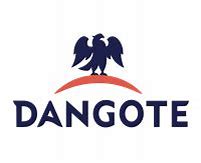
The total number of local and foreign companies exempted from remitting tax revenue to government coffers increased to 105 as of December 2024.
This came amid uncertainties over the programme’s effectiveness and the government’s announced plan to discontinue the policy as part of a broader strategy to boost its dwindling revenue base.
The Federal Government, through the Nigerian Investment Promotion Commission, approved tax holidays for 22 new companies under the Pioneer Status Incentive scheme, raising the total number of beneficiaries to 105 in the final quarter of the year.
This comes after the number of participating firms rose to 104 in the first quarter, declined to 88 in the second quarter, and dropped to 83 in the third quarter.
This was disclosed in the latest Pioneer Status Incentive reports released by the Nigerian Investment Promotion Commission and obtained by our correspondent on Wednesday.
Findings by The PUNCH also revealed that since the Chairman of the Presidential Tax Reform Committee, Taiwo Oyedele, announced in September 2023 that the committee would conduct a comprehensive review of tax waivers, aligned with the roadmap set by the previous administration, a total of 25 companies have received regulatory approval for tax exemption for the next three years.
The pioneer status is an incentive offered by the Federal Government, which exempts companies from paying income tax for a certain period. This tax exemption can be full or partial.
Offered under the Industrial Development Income Tax Act with tax reliefs for a three-year period, the incentive is generally regarded as an industrial measure aimed at stimulating investments in the economy. The products or companies eligible for this pioneer status are those that do not already exist in the country.
However, the incentives have been a contentious issue due to the high amount of revenue lost to waivers granted every year. The special tax exclusion has reportedly cost the government an estimated N8tn in lost revenue annually.
Last week, the Executive Chairman of the Federal Inland Revenue Service, Zacch Adedeji, at the 2025 Tax Expenditure Workshop revealed that revenue lost to tax expenditure remains difficult to quantify due to poor data availability across relevant government agencies.
He said this is because tax incentives are not properly weighed against their real economic benefits, which makes it hard to know their true cost and creates room for unverified tax expenditure figures in different quarters.
Adedeji said, “It has been argued that the government is losing revenue through tax incentives, which have been difficult to quantify due to limited data availability. In granting tax incentives by the government, there are expected benefits to be derived from the entities that enjoy these incentives, such that if adequately quantified when analysing the Tax Expenditures in terms of socio-economic impact will show that the actual financial cost to government vis – a viz benefits will be minimised, and a positive developmental curve or growth curve will be observed.”
To address the ongoing challenges, the government has proposed four new tax bills aimed at stimulating economic growth and attracting investment, including a new tax credit scheme (the Economic Development Incentive) intended to replace the existing Pioneer Status Incentive. However, the legislative process has stalled at the National Assembly, delaying implementation.
The Presidential Tax Committee Chairman, Taiwo Oyedele, said the development incentive is designed to stimulate real economic activity by tying tax relief directly to verifiable investments.
The proposed tax credit or EDI is a departure from the one-size-fits-all model. Instead, it’s structured around priority sectors -primarily manufacturing, followed by services and infrastructure – with strong multiplier effects on the economy.




